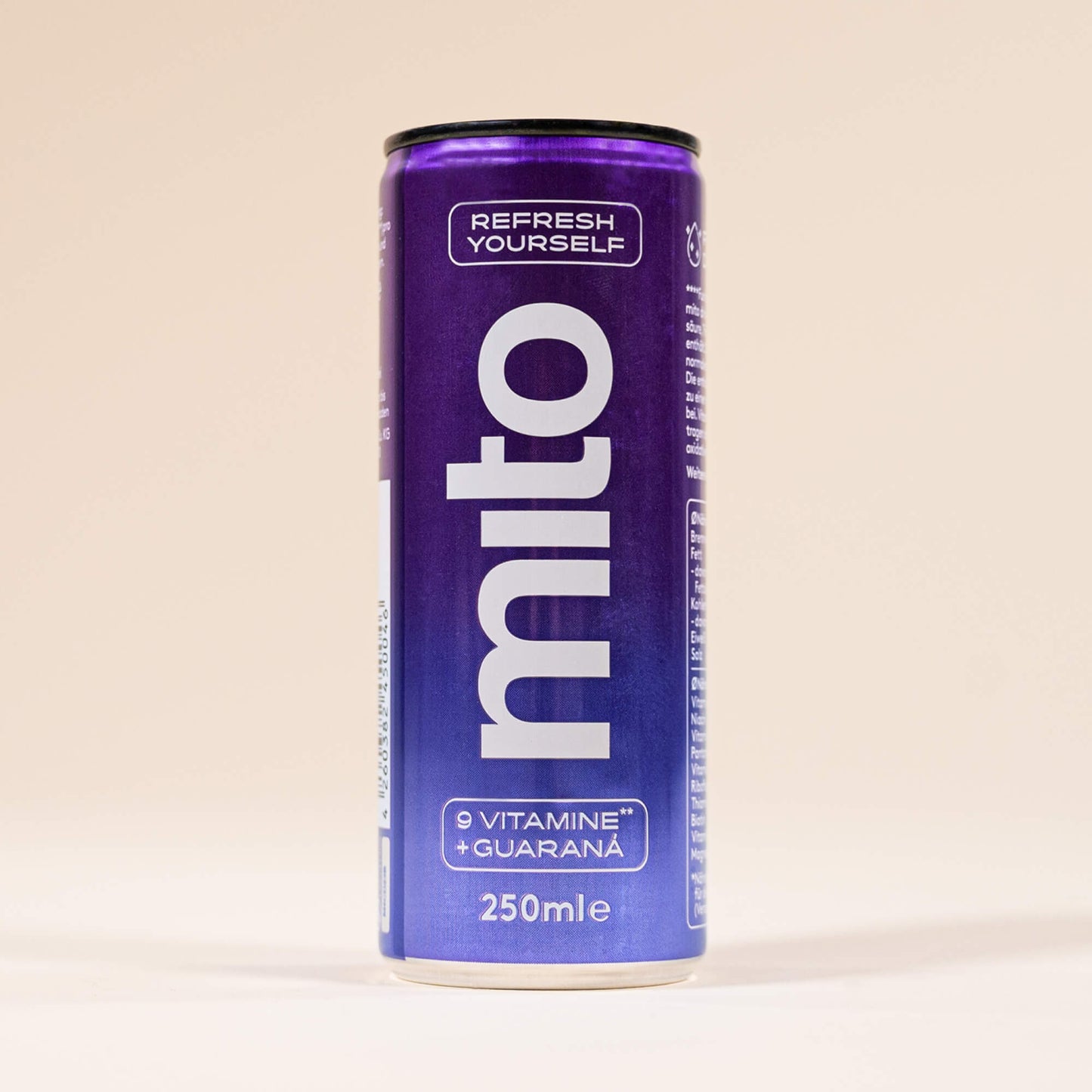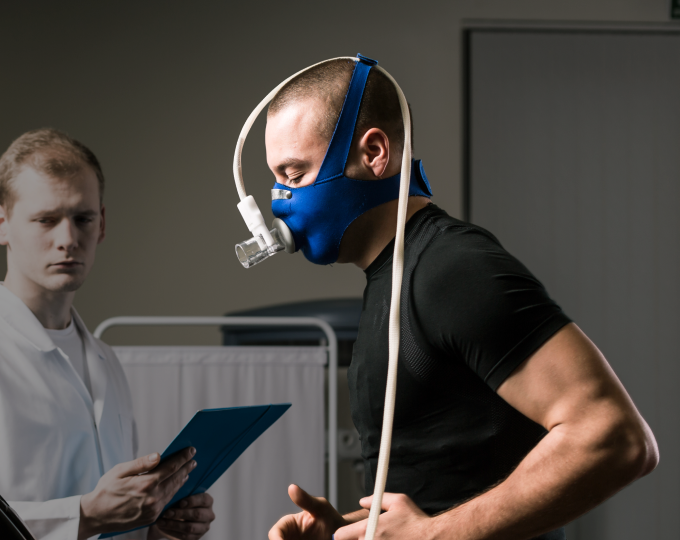Themen dieses Blogartikels:
Table of contents
- Regeneration & Energy: How your inner rhythm works
- What role does the day-night rhythm play in your recovery?
- Summer fatigue & exhaustion: Important signals that your body needs rest
- Relaxation in late summer: Why relaxation is important now
- Understanding and strengthening mitochondria: Everything about your cellular power plants
- How to effectively strengthen your cellular power plants for more power in late summer
- How to use micronutrients for optimal cell energy and against summer fatigue
- Plant substances and amino acids for more energy
- Eating habits for relaxed late summer days
- Whether spring, summer, or winter: Use hydration as a power source
- How to put your nervous system into rest mode at the end of summer
- 5 practical tips to power your body
- Sources & Bibliography
Regeneration & Energy: How your inner rhythm works
To be fit for beach volleyball, bike rides, and pool parties in the summer, and to survive every heat wave, you need a lot of energy. During active periods, your body provides you with this energy, for example, by producing stress and activity hormones like cortisol. But after each active period, you need time to build up new energy reserves for the next adventure.
What role does the day-night rhythm play in your recovery?
Exhaustion and relaxation should always be balanced. Biological rhythms such as the circadian rhythm ensure a balance between regeneration and activity: your internal clock controls the alternation of activity and rest within 24 hours. You'll notice this, for example, when you feel slumped at midday or feel tired when you curl up on the couch after dark.
The reason: During the day, sunlight inhibits the release of melatonin, keeping you awake and energized. In the evening, your body produces more of the sleep hormone, preparing you for a restful night's sleep. In between, you go through ultradian rhythms – short activity cycles in which phases of high concentration alternate with short lows – over a period of about 90 to 120 minutes.¹
Summer fatigue & exhaustion: Important signals that your body needs rest
If your natural rhythm gets disrupted by irregular daily routines in the summer, not only your sleep quality, metabolism, and mood suffer, but also your energy level.² Fatigue signals that your energy reserves are depleting and your body needs a break. If you even feel exhausted, your body may have used up more energy than it could regenerate.


Relaxation in late summer: Why relaxation is important now
Exhaustion and summer fatigue are important signs that you should take seriously if you don't want to permanently overtax your body. Especially in late summer, it's worth consciously planning relaxation so that your body and mind can truly regenerate and you can start the fall in a good mood. Nature shows us how: After the peak summer season, many living creatures gather reserves in late summer and prepare for a quieter time.
During late summer's quiet phases, the parasympathetic nervous system takes over, heart rate and breathing slow, blood pressure and stress hormones drop. Muscles and tissue regenerate, and waste products are removed from the brain. You'll feel it immediately: After truly switching off, your mind is clearer.
So, slow down your workouts or indulge in more relaxing evenings at home. Pay special attention to your body's energy producers: the mitochondria. They determine how much energy you actually have available in everyday life, how strong your immune system is, and when your batteries run out.
Advertisement
- 40 premium bioactive ingredients – everything your mitochondria need to feed
- Supports cell energy, energy levels, performance & efficiency
- Unique complex, developed with doctors & experts
- Contains vitamins, minerals, amino acids, medicinal mushrooms & many other premium active ingredients


Understanding & Strengthening Mitochondria: Everything About Your Cell Powerhouses
Mitochondria are found in every cell in your body. These tiny power plants produce the energy carrier adenosine triphosphate , or ATP for short, which your muscles, nerves, and organs need to function. Without mitochondria, there is no cellular energy—and no regeneration, because mitochondria
- help to break down free radicals,
- are involved in cell repair or
- initiate the regulated cell death of severely damaged cells.
How efficiently your cellular power plants can function depends on your lifestyle. These factors damage your mitochondria :
- constant stress
- chronic inflammation
- Environmental toxins
- poor diet
- lack of sleep


You can read more about the functions and functions of mitochondria in our basic article “What are mitochondria? ”
How to effectively strengthen your cell power plants for more power in late summer
Your mitochondria function best when you maintain a balanced lifestyle. This includes getting enough sleep, regular exercise in the fresh air, and nutrients. The following tips for strong mitochondria can be easily integrated into your daily routine:
- Lack of sleep negatively impacts your mitochondria.³ So find a sleep-wake rhythm that suits you and stick to it. Our tips for better sleep will help you.
- Exercise not only trains your muscles, but also your mitochondria. Studies show that regular endurance training —ideally outdoors—can increase mitochondrial function in immune cells and the performance of the mitochondria within these cells.⁴
- With a varied and balanced diet that includes proteins, healthy fats and complex carbohydrates, you provide your mitochondria with the necessary “fuel” for ATP production.
You can read even more tips for strong mitochondria in our MITOcare blog:
How to use micronutrients for optimal cell energy and against summer fatigue
Mitochondria need certain micronutrients for ATP production and to protect themselves from damage. However, in the summer, it's easy for your body to not absorb enough nutrients due to barbecues or too much ice cream. You can change this with a targeted diet and supplementation as needed. The following micronutrients are important:
- Coenzyme Q10 is a substance produced by the body itself and found primarily in cell membranes. Adequate intake can support cellular energy production, combat fatigue, and improve the body's resistance to stress.⁵ Q10 is found in fatty fish such as mackerel or salmon, in offal such as liver, and in nuts.
- NADH (nicotinamide adenine dinucleotide) is an important building block of energy metabolism and involved in ATP production. Studies have found that NADH can combat chronic fatigue.⁶ The body needs vitamin B3 to convert it to NAD and reduce it to NADH. It is found in legumes, seeds, meat, and fish, for example.
- Magnesium is a true all-rounder that contributes to normal energy metabolism and can help reduce fatigue.⁷ If you're constantly exhausted, it might be worth taking a look at your magnesium intake. Sources include green leafy vegetables like spinach or chard, nuts, seeds, pulses, and whole grains.
Mitochondria require various vitamins to produce ATP. In addition to vitamin B3, other members of the B vitamin family, such as vitamins B1, B6, and B12, are particularly important. A vitamin B12 deficiency, which is more common in vegans or older people, is considered one of the causes of low energy in summer.⁸ B vitamins are found in whole grain products, legumes, animal products such as milk or eggs, and green vegetables.
Plant substances and amino acids for more energy
In addition to classic micronutrients , plant-based and functional substances also support you in the fight against summer fatigue:
- Ashwagandha is one of the natural plant substances (adaptogens) that can help your body cope with stress and contribute to inner balance.⁹
- L-theanine is an amino acid found in green tea. It has a calming effect on the nervous system without causing drowsiness, thus supporting concentration and calmness.¹⁰


Eating habits for relaxed late summer days
It's not just what's in your meals that matters, but also how you eat them. Large meals slow your digestion and make you tired. Smaller, balanced meals are better. Eaten throughout the day, they provide you with a constant supply of energy.
This also applies to whole-grain products and slow-digesting carbohydrates —combined with protein and fat, they keep your blood sugar stable. Processed sugar and white flour, on the other hand, cause blood sugar to spike and then plummet.
If temperatures are still sweaty even in late summer, you should also supply your body with electrolytes to compensate for the loss of minerals through sweat. A homemade spritzer with a pinch of salt, for example, can help.
Whether spring, summer or winter: Use hydration as a power source
Speaking of hydration: Adequate fluid intake is crucial for your cell function and energy production at any time of year. Even a slight dehydration due to sweating can trigger fatigue, poor concentration, and headaches.¹¹ So drink water regularly, even when the temperatures outside are no longer record-breakingly high. Always listen to your thirst and aim to drink at least 1.5 liters of water or low-calorie beverages a day.¹²
Are you finding it difficult to drink enough despite the heat? Try starting the day with a large glass of lukewarm water. This will get your circulation going. Spice up your water with a slice of lemon or some mint – or opt for unsweetened beverages like tea.
If you're one of those people who easily forget to drink, place a filled glass or carafe wherever you spend time and use the visual stimulus as a reminder , or let an app or your smartwatch remind you to take regular drinking breaks.
Advertisement
- 40 premium bioactive ingredients – everything your mitochondria need to feed
- Supports cell energy, energy levels, performance & efficiency
- Unique complex, developed with doctors & experts
- Contains vitamins, minerals, amino acids, medicinal mushrooms & many other premium active ingredients


How to put your nervous system into rest mode at the end of summer
Besides diet, there are even more unusual ways to put your nervous system into rest mode and support your mitochondria. Sounds, frequencies, and rituals play a role. Here are three methods you can try right away:
- Breathing techniques: With conscious breathing, you can quickly calm your nervous system and activate the parasympathetic nervous system – ideal after a delightful summer:
- Abdominal breathing: inhale for 4 seconds, exhale for 6 seconds – calms immediately.
- Box Breathing: 4 in – 4 hold – 4 out – 4 hold – brings focus and balance.
- Humming while exhaling: A gentle “mmm” or “ohm” activates the vagus nerve and promotes deep relaxation. - Binaural beats: Sounds with slightly different frequencies can create oscillations in the brain that promote relaxation or concentration. A meta-analysis found that binaural beats have a moderate but significant effect on reducing anxiety.¹³
- Schumann frequency (7.83 Hz): This frequency is also called the "heartbeat of the Earth" because it is the fundamental frequency of the Earth's electromagnetic resonance field and lies in the range of deep relaxation. A Japanese study found that on days with increased Schumann resonance, the subjects' average blood pressure and heart rate were lower than on control days.¹⁴ This frequency can be experienced through proximity to nature, for example, when standing barefoot in a meadow or meditating outdoors. There are also pieces of music or white noise generators with a built-in 7.83 Hz frequency.
- Routines: An alternative to beats and frequencies are small rituals that prepare you for rest periods. Dimmed lights in the evening, quiet music, gentle stretching exercises before falling asleep, or regular journaling can signal to your body that it's almost bedtime. Daytime rituals are also important. For example, incorporate active micro-breaks of about five minutes into your daily routine every 90 minutes. Stretch, take a few steps, or do breathing exercises. Such short breaks can reduce fatigue and maintain performance.15
5 practical tips to power your body
Finally, we summarize the most important practical tips for combating summer fatigue so that you can get started right away and live your life full of energy.
- Maintain sleep hygiene: Go to bed and wake up at the same time as regularly as possible. A ritual like a warm shower or a delicious cup of tea and a cool, dark bedroom promote nighttime rest.
- Schedule active breaks: Get up briefly every 60 to 90 minutes to enjoy the sun with a walk and breathe mindfully. Or recharge your batteries with a 10 to 20-minute power nap.
- Take signs of exhaustion seriously: Listen to your body when it signals hunger, thirst, or fatigue. This way, you can prevent small warning signs from becoming major alarm signals that you can no longer counter with micro-breaks alone.
- Strengthen mitochondria daily: Exercise, daylight, and a balanced diet keep your cellular powerhouses fit. Even small changes like a 20- to 30-minute walk a day, yoga in the park once a week, or forest bathing on the weekend make a difference.
- Embed mindfulness firmly: Make mindfulness a permanent part of your daily life. Try meditation, journaling, taking conscious breaks from your phone, or simply doing nothing – this calms your nervous system, prevents constant stress, and gives you energy for the next challenges.
Don't perceive your body's signals as weakness, but rather as an invitation to take a break. This is called active self-care. If you learn to correctly interpret your body's warning signs and follow them, you can do a lot for your well-being and your immune system during the summer and beyond.
Stay inspired and mindful and enjoy the last days of summer to the fullest. This way, you'll draw on natural energy, find peace, and maintain a good mood and a positive attitude even during the grayer phase of the year.
This article is based on carefully researched sources:
Sources & Bibliography
- sciencedirect.com/topics/medicine-and-dentistry/ultradian-rhythm
- Desai, D., Momin, A., Hirpara, P., Jha, H., Thaker, R., & Patel, J. (2024). Exploring the Role of Circadian Rhythms in Sleep and Recovery: A Review Article. Cureus , 16 (6), e61568.
- sciencedirect.com/science/article/abs/pii/S1568163724001259
- zeitschrift-sportmedizin.de/effekte-der-kardiorespiratorischen-fitness-auf-den-mitochondrialen-immunzellmetabolismus-in-gesundheit-und-krankheit/
- Mizuno, K., Sasaki, AT, Watanabe, K., & Watanabe, Y. (2020). Ubiquinol-10 Intake Is Effective in Relieving Mild Fatigue in Healthy Individuals. Nutrients , 12 (6), 1640.
- Castro-Marrero, J., Segundo, MJ, Lacasa, M., Martinez-Martinez, A., Sentañes, RS, & Alegre-Martin, J. (2021). Effect of Dietary Coenzyme Q10 Plus NADH Supplementation on Fatigue Perception and Health-Related Quality of Life in Individuals with Myalgic Encephalomyelitis/Chronic Fatigue Syndrome: A Prospective, Randomized, Double-Blind, Placebo-Controlled Trial. Nutrients , 13 (8), 2658.
- Micke, O., Vormann, J., Classen, HG, & Kisters, K. (2020). Magnesium: Relevance for general practitioners – a position paper of the Society for Magnesium Research e. V. [Magnesium: Relevance for general practitioners - a position paper of the Society for Magnesium Research e. V.]. Deutsche Medizinische Wochenschrift (1946) , 145 (22), 1628–1634.
- O'Leary, F., & Samman, S. (2010). Vitamin B12 in health and disease. Nutrients , 2 (3), 299–316.
- Chandrasekhar, K., Kapoor, J., & Anishetty, S. (2012). A prospective, randomized double-blind, placebo-controlled study of safety and efficacy of a high-concentration full-spectrum extract of ashwagandha root in reducing stress and anxiety in adults. Indian journal of psychological medicine , 34 (3), 255–262.
- Hidese, S., Ogawa, S., Ota, M., Ishida, I., Yasukawa, Z., Ozeki, M., & Kunugi, H. (2019). Effects of L-Theanine Administration on Stress-Related Symptoms and Cognitive Functions in Healthy Adults: A Randomized Controlled Trial. Nutrients , 11 (10), 2362.
- Ganio, MS, Armstrong, LE, Casa, DJ, McDermott, BP, Lee, EC, Yamamoto, LM, Marzano, S., Lopez, RM, Jimenez, L., Le Bellego, L., Chevillotte, E., & Lieberman, HR (2011). Mild dehydration impairs cognitive performance and mood of men. The British journal of nutrition , 106 (10), 1535–1543.
- dge.de/gesunde-ernaehrung/gut-essen-und-trinken/dge-empfehlungen/
- Garcia-Argibay, M., Santed, MA, & Reales, JM (2019). Efficacy of binaural auditory beats in cognition, anxiety, and pain perception: a meta-analysis. Psychological research , 83 (2), 357–372.
- Mitsutake, G., Otsuka, K., Hayakawa, M., Sekiguchi, M., Cornélissen, G., & Halberg, F. (2005). Does Schumann resonance affect our blood pressure?. Biomedicine & pharmacotherapy = Biomedecine & pharmacotherapy , 59 Suppl 1 (Suppl 1), pp. 10–S14.
- Albulescu, P., Macsinga, I., Rusu, A., Sulea, C., Bodnaru, A., & Tulbure, BT (2022). "Give me a break!" A systematic review and meta-analysis on the efficacy of micro-breaks for increasing well-being and performance. PloS one , 17 (8), e0272460.

















